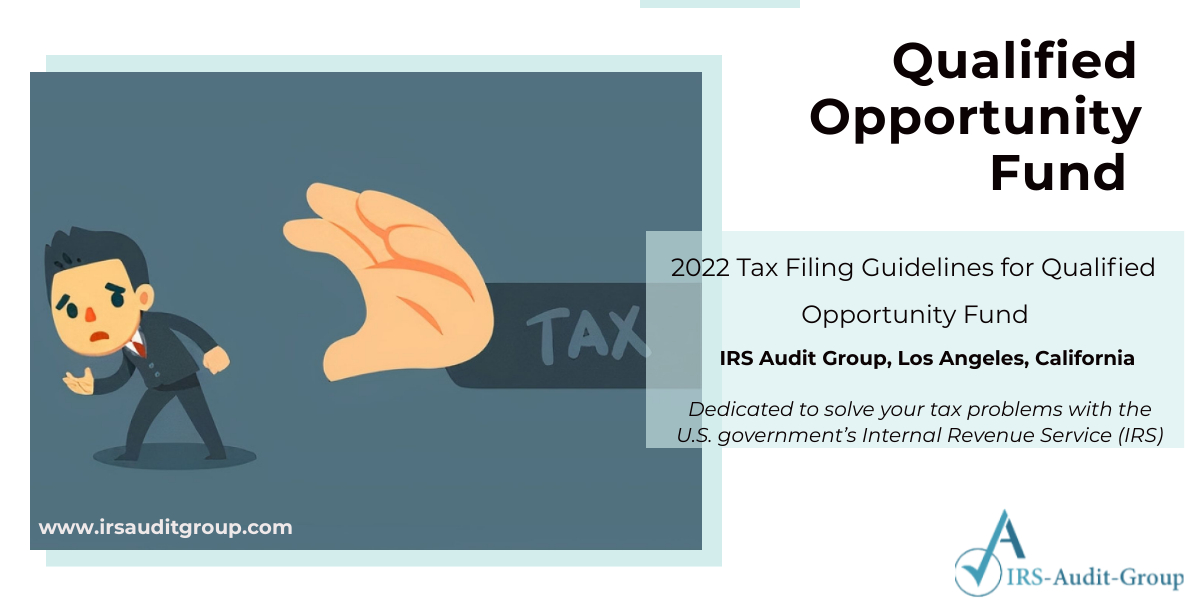Qualified Opportunity Fund (QOF) is an investment vehicle formed as a company or partnership with the goal of investing in property within Qualified Opportunity Zones. This program was formed per the 2017 Tax Cuts and Jobs Act to provide a tax incentive for private, long-term investment in economically distressed communities. There are thousands of low-income communities in all 50 states, the District of Columbia and five U.S. territories that are designated as Qualified Opportunity Zones. Taxpayers can invest in these zones through Qualified Opportunity Funds. This type of opportunity funds assists taxpayers in giving tax advantages and rewards to investors.
Certain types of businesses cannot be included in opportunity funds, even if it falls within opportunity zones. Following are types of business which are not included in opportunity funds.
- Golf courses
- Country clubs
- Massage parlors
- Hot tub facilities
- Suntan facilities
- Racetracks or other facilities used for gambling
- Liquor stores
Eligibility Criteria
To certify and maintain a Qualified Opportunity Fund, an entity must:
- Be a partnership, corporation, or LLC that is treated as a partnership or corporation, and it must have filed a federal income tax return;
- Be organized for the purpose of investing in Qualified Opportunity Zone property under the laws in one of the 50 states, the District of Columbia, a U.S. possession, or a federally recognized Indian tribal government: and
- Hold 90% of its assets in Qualified Opportunity Zone property.
IRS Form Required to Certify as a Qualified Opportunity Fund
The entity must file Form 8996, QOF, with the qualifying partnership or corporation’s federal tax return each year to attest and retain its status as a Qualified Opportunity Fund. The entity must file Form 8996 by the due date for 2022 tax return (including extensions).
Form 8996 is used to:
- Certify the corporation or partnership is organized to invest in Qualified Opportunity Zone property.
- Report that it meets the 90% investment standard of section 1400Z-2.
- Figure the penalty if it fails to meet the 90% investment standard.
Benefits to the Taxpayers
The QOF basically provides tax deferral to the capital gains if the taxpayer elects to do so. The basis in the QOF investment becomes zero when one elect to defer the gain. The longer the investment in the QOF, the higher the basis grows. The tax benefit received is determined by the length of time one retains the Qualified Opportunity Fund investment. For instance
- After five years, a taxpayer who defers gains through a Qualified Opportunity Fund investment obtains a 10% step-up in tax basis
- It will be followed by another 5% step-up after seven years. Note that the taxpayer must have invested before December 31, 2019, to receive the entire 15% step-up in tax base. The taxpayer will have held the investment in the fund for seven years when the tax is triggered at the end of 2026, thereby qualifying for the 15% increase in tax basis.
- If the taxpayer holds the investment in the QOF for at least 10 years, then such taxpayer may be able to permanently exclude gain resulting from a qualifying investment when it is sold or exchanged.
A team of tax attorneys from IRS Audit Groups helps taxpayers in filling their IRS return for 2022. We are certified tax lawyers who represent taxpayers during any IRS audit. We can resolve common tax problems to complex audit sessions to help comply our clients. Get free consultation by calling or filling the enquiry from our website below
https://irsauditgroup.com/contact/
Telephone Number: (310) 498-7508
Email address: info@irs-audit-group.com

